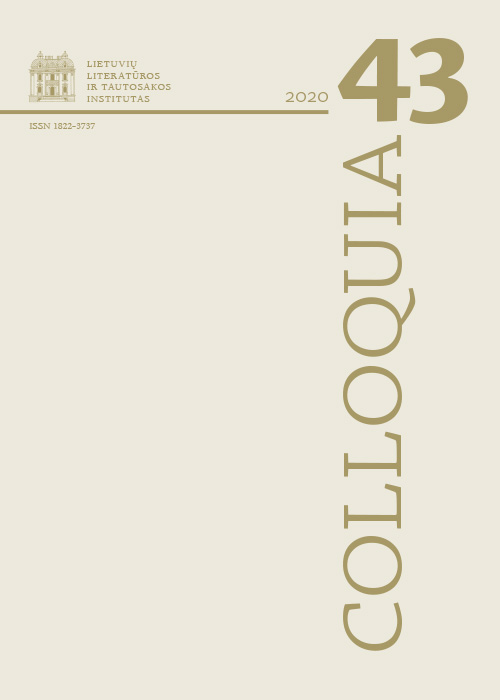Alfonsas Nyka-Niliūnas’s Literary Review: Polemical Dialogues
Abstract
Alfonsas Nyka-Niliūnas (1919–2015), the celebrated Lithuanian poet of the 20th century, was also one of the most prominent literary critics. For more than two decades, he had been an active literary critic, publishing his texts in Lithuanian émigré literary and culture magazines. In addition to his studies on the history and criticism of Lithuanian literature, articles on Western and Lithuanian classics, Nyka-Niliūnas wrote literary reviews. In the field of Lithuanian émigré literature and criticism, he validated a certain type of critical review which emphasized novelty, originality and evaluation of the book in question.
Nyka-Niliūnas wrote his first reviews in a monthly pedagogical journal, Tremtinių mokykla [School of Exiles], published in a German DP camp. The reviews published in the journal, and later in the cultural magazine, Aidai [Echoes], stood out for their completeness, coherent structure, and strict and straightforward evaluation that allowed seeing a particular book in a broader context. A number of Nyka-Niliūnas’s reviews of this period sparked controversy and encouraged literary dialogue.
In the US, Nyka-Niliūnas continued to publish literary reviews in Aidai and literary magazine, Literatūros lankai [The Pages of Literature]. In the reviews written during this period, he debated with a group of critics who held a different opinion, established the criteria for evaluating the literature, and highlighted the objectives and the importance of a literary review. Nyka-Niliūnas’s reviews can be characterized not only by author’s suggestive argumentation and fiery style, but also by his poetic metaphors.
